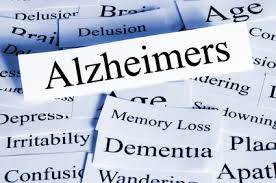
By Nathaniel Chin, MD

Dementia due to Alzheimer’s disease affects more than 6 million Americans, 120,000 here in Wisconsin. Symptoms vary person to person but commonly include gradual decline in memory, thinking skills, and ability to complete familiar tasks.
Many factors may play a role in an individual’s risk for developing Alzheimer’s disease. Age is the greatest risk factor. Women, combat veterans, and people with Down syndrome carry a higher risk for Alzheimer’s disease than the general population, and African Americans, Native Americans, and Latinx populations are diagnosed with the disease at higher rates than whites.
There is no cure for Alzheimer’s disease, but scientists have found evidence that some lifestyle changes may delay the onset or lower risk for the disease. Adopt these six brain health recommendations to help reduce your risk for Alzheimer’s disease. Stay physically active. Physical activity and exercise benefit the whole body, including the brain. Regular walks, group aerobics classes, and working out on machines are all good exercise, but vacuuming, gardening, mowing the lawn, and other home chores get your body moving too. Talk to your doctor about the type of physical activity that is right for you. In general, healthy seniors should aim for 30 minutes of moderate intensity activity five days a week. If you can’t fit in 30-minute bouts each day, attempt two 15-minute bouts instead.
Eat healthy foods. Food is fuel for your body and your brain. For optimal brain health, I recommend the MIND diet for healthy brain aging. The MIND diet emphasizes eating vegetables, dark leafy greens, nuts, fish, poultry, beans, whole grains, and berries, especially strawberries and blueberries. The diet also recommends limiting red meat, butter and margarine, cheese, pastries and sweets, and fried foods.
 Prioritize healthy sleep. Sleep is essential to healthy living. Aim for 7 to 9 hours of restorative sleep each night, prioritize sleep, and start a relaxing evening routine that includes dim lights (but not smartphones, TVs, or other screens) and peaceful thoughts.
Prioritize healthy sleep. Sleep is essential to healthy living. Aim for 7 to 9 hours of restorative sleep each night, prioritize sleep, and start a relaxing evening routine that includes dim lights (but not smartphones, TVs, or other screens) and peaceful thoughts.
Socialize with friends. Studies show that people with regular social contact are less likely to develop dementia and social interaction may even help delay the progression of dementia. Get togethers with friends, neighbors, family, and acquaintances require us to converse, engage in activities, and think about topics we may not think of independently — all factors that help our brains stay active.
Exercise your brain. Cognitive enrichment is another way of saying exercise for your brain. How can you exercise your brain? Learn new things! Practicing a new language, playing an instrument, trying a new craft, and learning a new topic and teaching it to others are all examples of exercise for your brain. Activities that are mentally stimulating and engaging have a positive impact on brain health.
Manage stress. Chronic stress contributes to inflammation and vascular disease, and can lead to negative, long-term effects on the brain. The link between stress and brain health is still being explored, but in the meantime it’s important to find ways to reduce the effects of chronic stress and build coping mechanisms. One way is through mindfulness. This might include meditation, performing breathing exercises, and reserving time for yourself to relax on a daily basis.
Nathaniel Chin, MD, is medical director at the Wisconsin Alzheimer’s Disease Research Center and a member of the Alzheimer’s Association Wisconsin Chapter Board of Directors.











